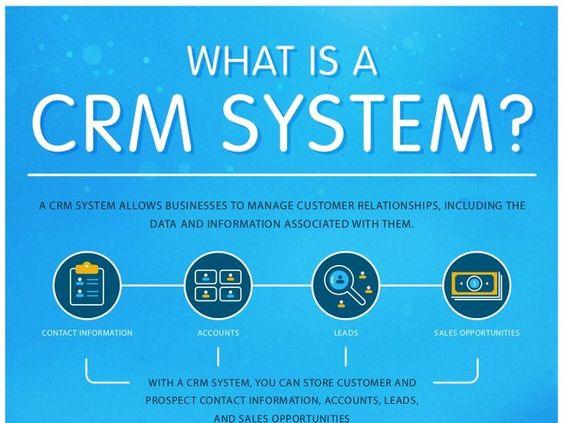Inquire
WHAT IS A CRM SYSTEM ? ?
Posted 2025-06-05 06:05:15
0
56

CRM, or Customer Relationship Management, is a strategic approach and set of technologies businesses use to manage and analyze customer interactions and data across various touchpoints. The goal is to improve customer relationships, foster loyalty, and drive sales growth.
Here's a more detailed look:
1. Contact Management:
Centralized Database:
CRM systems store customer information like names, phone numbers, emails, and purchase history in a single, accessible database.
Up-to-Date Information:
CRM helps keep customer records current, ensuring accurate and reliable data.
Search and Retrieval:
Allows easy searching and retrieval of customer data for quick access and analysis.
2. Lead Management:
Lead Capture and Tracking:
CRMs help capture leads, track their progress through the sales pipeline, and assign them to the appropriate sales representatives.
Lead Nurturing:
CRM enables the implementation of lead nurturing strategies, such as automated emails and targeted marketing campaigns.
Conversion to Customers:
CRM helps track lead conversions and identify patterns to optimize sales processes.
3. Sales Tracking:
Opportunity Management: CRMs help track sales opportunities, their status, and associated actions.
Sales Forecasting: Provides data for accurate sales forecasting and revenue projections.
Sales Activity Reporting: Generates reports on sales activities, such as calls, emails, and meetings.
4. Marketing Automation:
Automated Emails:
CRMs can send automated emails for lead nurturing, promotions, and follow-ups.
Social Media Integration:
Facilitates integration with social media platforms for targeted marketing campaigns.
Campaign Tracking:
Provides insights into marketing campaign performance, allowing for optimization and improvement.
5. Reporting and Analytics:
Data Analysis: CRMs analyze customer data to identify trends, patterns, and insights.
Custom Reports: Allow businesses to create custom reports for specific needs and goals.
Dashboard: Provides a real-time view of key performance indicators (KPIs) and customer data.
6. Other Important Functions:
Workflow Automation:
Streamlines business processes through automated workflows, like task assignments and email notifications.
Customer Service:
CRMs can be used to manage customer service tickets, track inquiries, and resolve issues efficiently.
Collaboration:
Facilitates team collaboration by providing a central platform for sharing information and tracking progress.
Document Management:
Enables easy creation, access, editing, and sharing of documents with customers or team members.
CONCLUSION:
In conclusion, Customer Relationship Management (CRM) is a strategic approach that benefits businesses by improving customer satisfaction, building stronger relationships, and driving sales. By implementing CRM systems, businesses can better understand and cater to individual customer needs, leading to increased loyalty and profitability.
Search
Categories
- Managerial Effectiveness!
- Future and Predictions
- Motivatinal / Inspiring
- Other
- Entrepreneurship
- Mentoring & Guidance
- Marketing
- Networking
- HR & Recruiting
- Literature
- Shopping
- Career Management & Advancement
Read More
Europe E-bike Market Dynamics: Regulatory, Policy, and Incentive Effects 2032
Europe E-Bike Market Overview
The Europe E-Bike Market was valued at USD 10.92...
Electric Propulsion Systems Market Insights – Market Share Trends and Strategic Forecast by 2033
Worldwide Electric Propulsion Systems Market Scope
[110 Pages Report] Comprising over 150...
Video Gaming Market Estimation Highlights Future Potential
The Video Gaming Market is on a strong growth trajectory, underpinned by innovations in...
Some Inspiring Quotes!
Good communicators frequently make their point to their audiences by apt use of powerful...
Global EGR Valve Market Key Players, Trends, Sales, Supply, Demand, Analysis and Forecast 2025-2034
The EGR Valve market report is intended to function as a supportive means to assess the...


 SkillClick
SkillClick